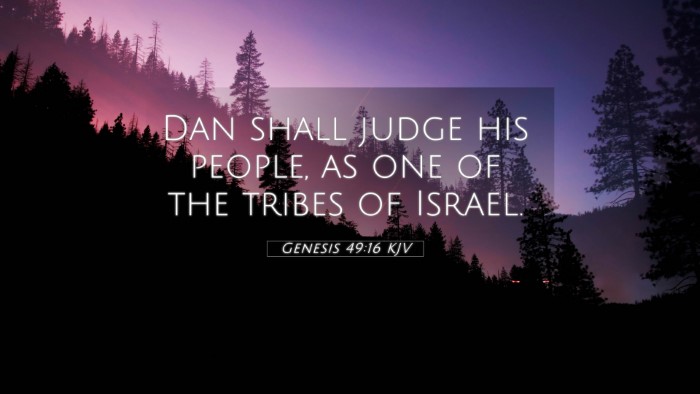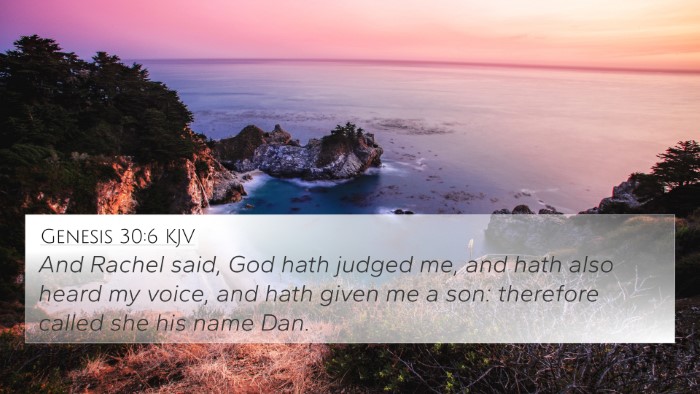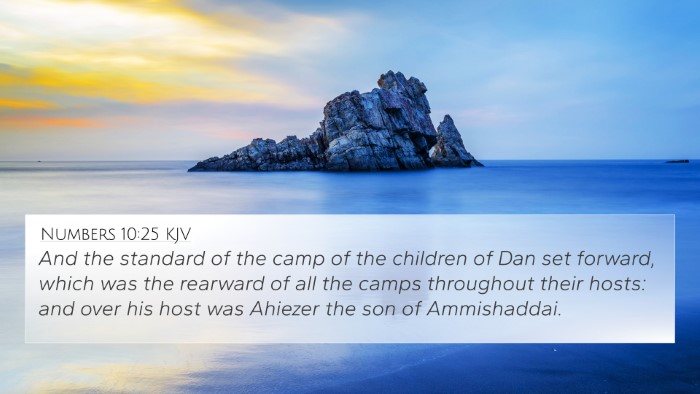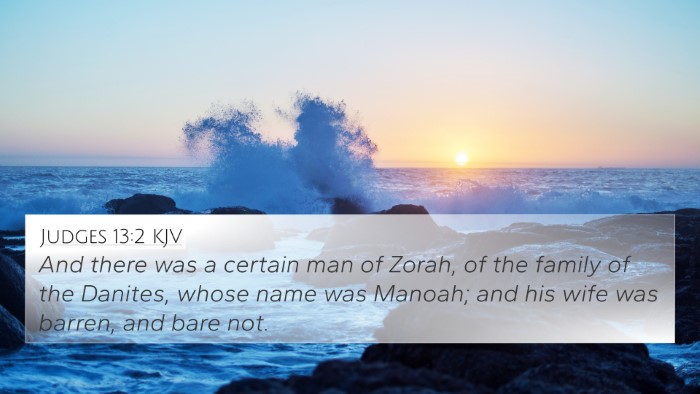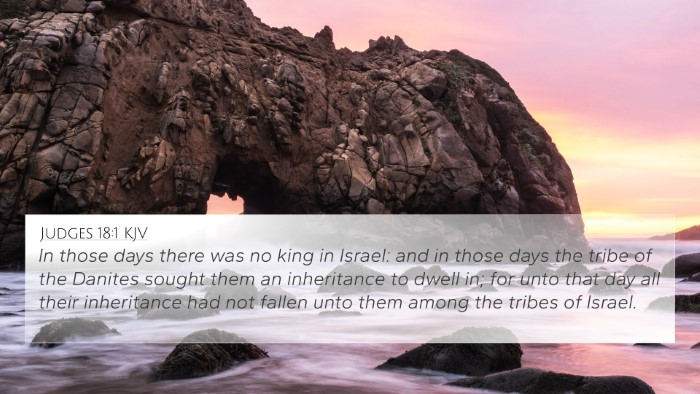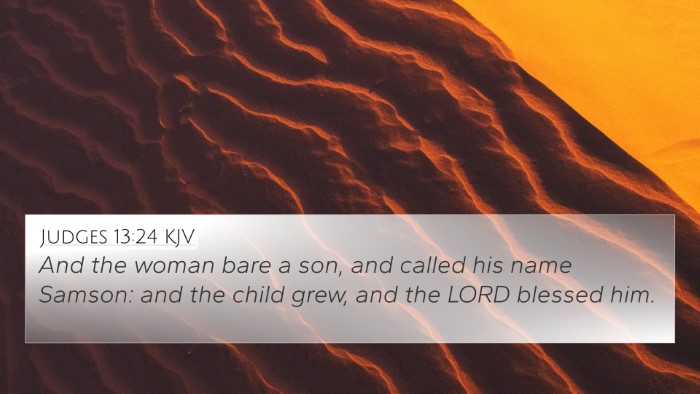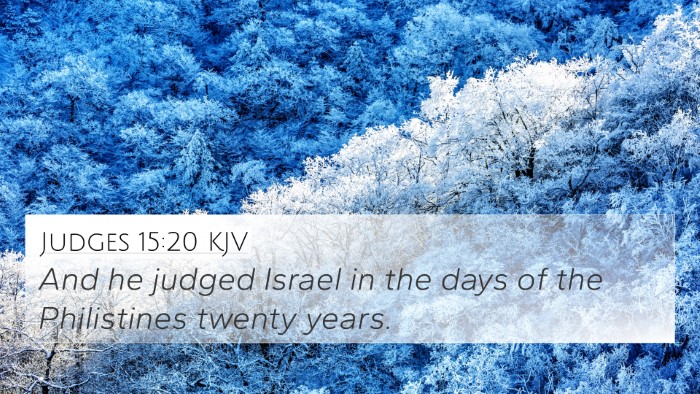Genesis 49:16 - Summary and Interpretation
Verse: "Dan shall judge his people, as one of the tribes of Israel." (Genesis 49:16)
This verse is part of Jacob’s blessings to his sons, where each son received a prophetic word regarding their future. The verse specifically pertains to Dan, the fifth son of Jacob and Bilhah, Rachel's maidservant. Jacob's mention of Dan as a judge among his people signifies a notable role that Dan would play in the governance and leadership of Israel.
Commentary Insights
- Matthew Henry: Henry emphasizes that Dan, being a judge, signifies the tribe's future role in adjudicating matters within Israel. He also notes that Dan represents both a blessing and a potential curse, as his legacy will eventually include both justice and idolatry.
- Albert Barnes: Barnes stresses the implication of Dan’s judicial role, suggesting that it prefigures the civil administration of the tribes. He recognizes Dan's character and notes the duality of his legacy—leading to both righteousness and rebellion.
- Adam Clarke: Clarke highlights Dan’s symbolic power as a judge, linking it to the future establishment of justice in Israel. He provides insights into the historical context of the tribe's influence and its later descent into apostasy.
Thematic Connections and Cross-References
The mention of Dan as a judge evokes a theme of justice and leadership that can be linked to several other scriptures within the Bible.
- Judges 13:2: The birth of Samson in the territory of Dan signifies God's provision of a judge from this tribe.
- Deuteronomy 33:22: Moses’ blessing upon the tribe of Dan reaffirms its significance among the tribes of Israel.
- 1 Chronicles 12:35: Dan's warriors are noted for their readiness in battle, indicating their strength and leadership role.
- Jeremiah 8:16: Refers to the swift horses of Dan, illustrating the swift judgment associated with the tribe.
- Revelation 7:5-8: The tribe of Dan is conspicuously absent from the listings of the sealed tribes, reflecting a divine judgment on their historical failings.
- Matthew 19:28: Jesus mentions the twelve tribes of Israel in relation to judgment, indicating the enduring significance of these roles.
- Hebrews 7:14: The mention of Jesus coming from the tribe of Judah as a royal priest contrasts with Dan, calling attention to the differing legacies of the tribes.
Connecting Themes Across the Scriptures
The theme of judgment extends beyond the tribe of Dan, presenting connections with other Biblical figures and events:
- Cross-referencing Biblical texts: The role of judges in ancient Israel can be analyzed alongside the role of leaders such as Moses and Samuel, illustrating a broader theme of divine leadership.
- Comparative Bible verse analysis: Genesis 49:16 should be considered alongside prophetic verses in Isaiah that mention justice and righteousness, reflecting God's intention for His people to live righteously.
Conclusion
The verse Genesis 49:16 encapsulates a complex inter-Biblical dialogue regarding leadership, justice, and legacy. It serves as a reminder of both the honor and responsibility borne by those in positions of authority among God's people.
Additionally, understanding this verse calls upon various tools for Bible cross-referencing, enabling readers to identify substantial connections between Old and New Testaments, as well as themes that run throughout scriptural narratives.
In conclusion, exploring Genesis 49:16 through the lens of historical and thematic connections provides deeper insights into the nature of divine justice as well as the prophetic destiny tied to each tribe of Israel.

